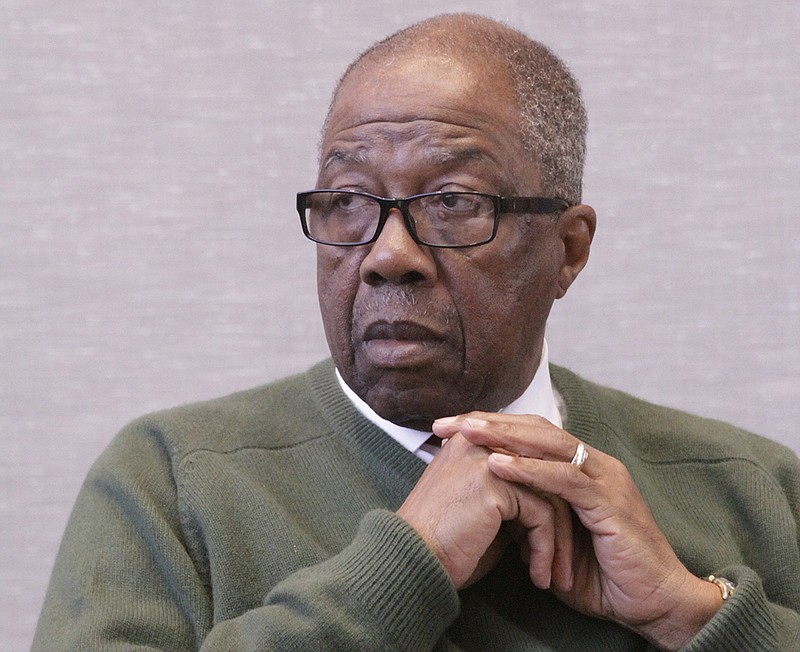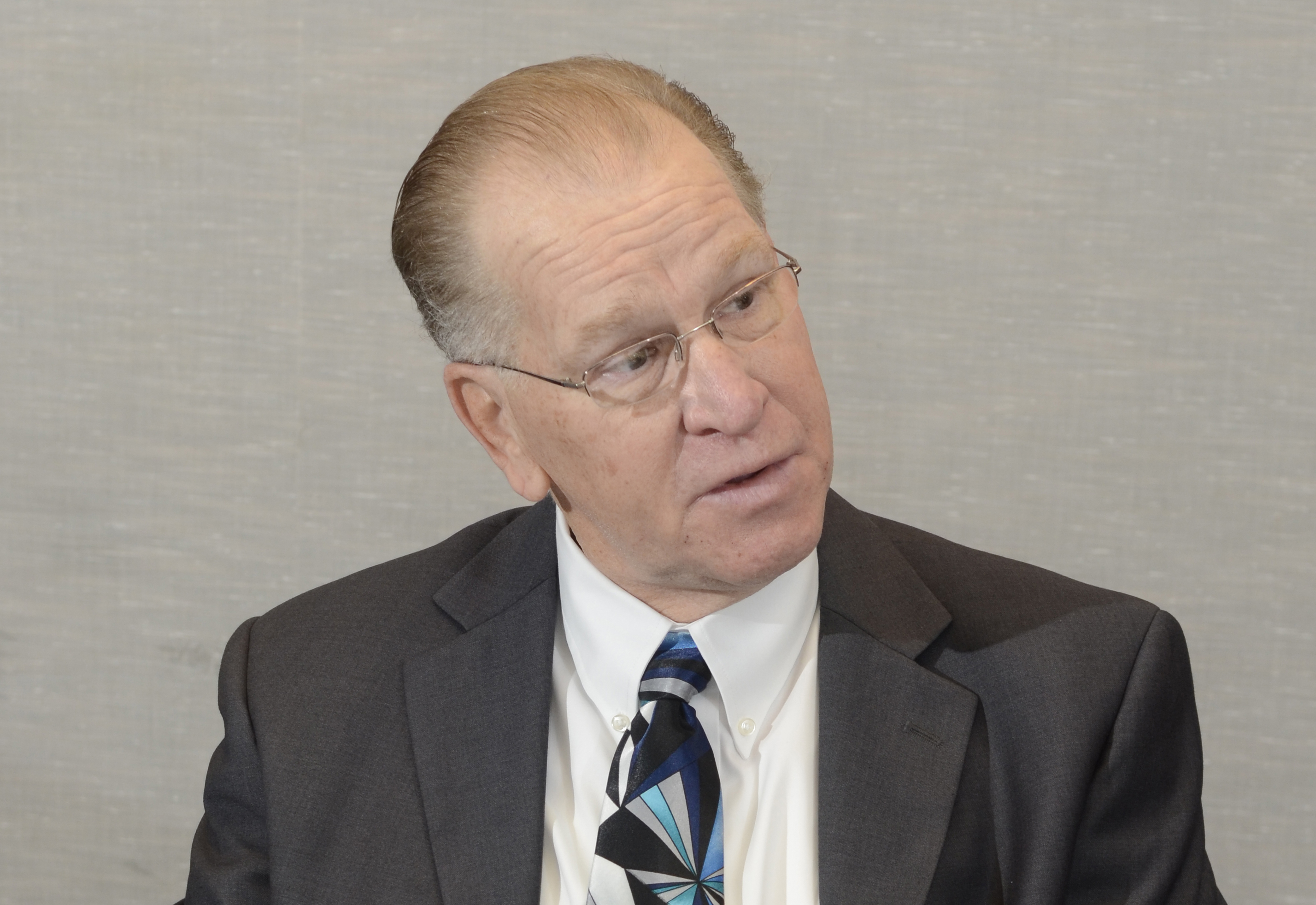Fast facts
* The current federal minimum wage is $7.25 an hour. * Adjusted for inflation, the federal minimum wage peaked in 1968 at $8.54 (in 2014 dollars). Since it was last raised in 2009, to the current $7.25 per hour, the federal minimum has lost about 8.1 percent of its purchasing power to inflation. * Nearly half (48.2 percent) of the 3 million hourly workers who were at or below the federal minimum in 2014 were ages 16 to 24. * Twenty-nine states, plus the District of Columbia and nearly two dozen cities and counties, have set their own higher minimums. * The restaurant/food service industry is the single biggest employer of near-minimum-wage workers. Source: Pew Research Center
On the heels of Labor Day weekend, Chattanooga is the latest city to join a national movement aiming to raise minimum wages within municipal boundaries. But the first hurdle for the Scenic City may be clearing a wall set by the state.
Los Angeles recently pledged to raise its minimum wage from $9 to $15 by 2020. And it followed Seattle and San Francisco in 2014, Time magazine reported in May.
On Tuesday, Chattanooga City Councilman Moses Freeman asked his fellow council members to sponsor legislation to set a local minimum wage and asked the city attorney to start researching the issue.
He said inactivity at the state and federal levels has kept local workers in poverty.
"I think it's time that we look into it. We are not getting any leadership at the state or federal levels," Freeman said. "I think workers here who are at the federal minimum - that's $7.25 an hour - that is not enough in today's world to keep workers out of poverty."
But the council may hit "legislative issues," according to City Attorney Wade Hinton.
In 2014, a councilman for the city of Memphis sought to set a minimum wage in that municipality above the federal and state level. But that effort was halted because the Tennessee General Assembly passed a law in 2013 to prevent cities from doing exactly that.
The law, Tennessee Code Annotated 50-2-112, restricts municipalities from setting a wage minimum above the state and federal minimums for companies with which it contracts.
But still, Hinton will present a bill to the council once he's finished with his research.
And council members Chris Anderson and Jerry Mitchell, who said at a nonvoting meeting they would sponsor the bill once it's drafted, said they would challenge the 2013 law.
"I'm aware that the legislature passed a law that makes them think that they can restrict us from passing a minimum wage," Anderson said. "Councilman Freeman has asked our attorney to find a way to do it, and I support him."
Mitchell had similar sentiments.
"Some people in Nashville, some of whom we elected, feel municipalities shouldn't have this power. But I'm willing to debate that with them publicly," Mitchell said.
Not everyone on the council is a fan, however.
Councilman Larry Grohn said the market should determine wages in Chattanooga, not the government. An increase in the local minimum wage will ultimately mean fewer minimum-wage jobs for people who aren't equipped to find higher-paying work, he said.
"I think our push should be job training and education," he said. "If you want to reduce the number of entry-level jobs, you increase the minimum wage."
And some labor statistics support Grohn's position.
The nonpartisan Congressional Budget Office reported in February 2014 that while raising the minimum wage would increase income for some low-paid workers, it would mean others lose their income completely.
"Most of them would receive higher pay that would increase their family's income, and some of those families would see their income rise above the federal poverty threshold. But some jobs for low-wage workers would probably be eliminated, the income of most workers who became jobless would fall substantially, and the share of low-wage workers who were employed would probably fall slightly," according to the budget office's report.
And the announcement raised ears at the Chattanooga Area Chamber of Commerce, too.
Rob Bradham, vice president of public strategies at the chamber, said local business leaders would be "very interested" in the proposal. The chamber doesn't have a position on the matter yet, he said, but the organization would seek to play an active role in the discussion.
"I spoke with Councilman Freeman [Tuesday], and he agreed the chamber would have a seat at the table as the discussion moves forward," Bradham said.
Freeman said he had not consulted the city administration about his proposal, saying he "just felt moved" to propose it. But he welcomed Mayor Andy Berke's help.
City workers already are paid a minimum wage above the federal and state minimum.
The lowest wage the city pays employees is $11.95 an hour, which comes out to roughly $24,850 a year, he said.
The U.S. Bureau of Labor Statistics doesn't have city-by-city wage statistics, but in 2014, the bureau reported Tennessee had the highest share of workers of any state paid at or below the minimum wage.
A total of 110,000 of the state's 1.6 million workers, or 5.2 percent, were paid the minimum wage or less. Nationwide, 3.9 percent of all workers were paid the minimum wage or less in 2014, according to the bureau.
Among all hourly workers in the country, 1.3 million earned exactly $7.25 per hour. About 1.7 million had wages below the federal minimum. Together, these 3 million workers made up 3.9 percent of all hourly paid workers, bureau statistics show.
It's unclear when the proposed legislation will be drafted, or when it would come before the city council.
Business editor Dave Flessner contributed to this story.
Contact staff writer Louie Brogdon at lbrogdon@timesfreepress.com, @glbrogdoniv on Twitter or at 423-757-6481.

